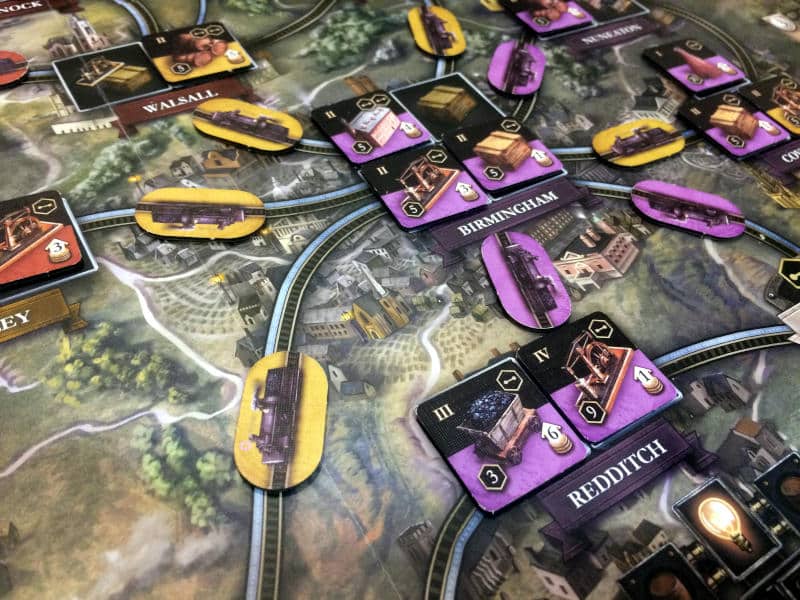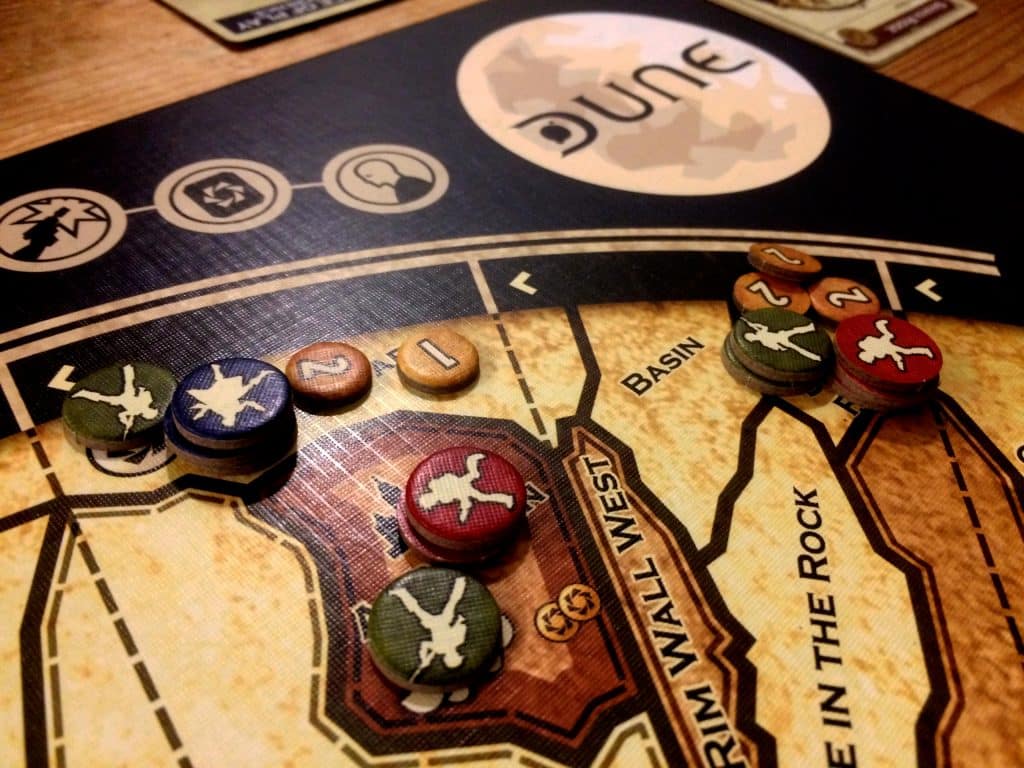There is a type of board game that I absolutely love. In fact, I’ve always loved it. Economic simulations somehow activate a certain part of my brain that is really stimulating. These games not only activate my brain’s reward centre, but their competitive nature and the element of bluffing all scratch the right itches for me. In this article, I want to look in a bit more detail at which games fall into this category of economic simulation and what it is about them that I enjoy so much.
Listen to the Audio Version
Intro Music: Bomber (Sting) by Riot (https://www.
Music: In The Moment by Sascha Ende
Website: https://filmmusic.io/song/287-in-the-moment
Licensed under CC BY 4.0: https://filmmusic.io/standard-license
There are certainly some obvious candidates that are definitely economic simulations, at least in my view. Some of these are all about market manipulation, such as Hab & Gut (or The Rich & The Good), or have banking as their setting, such as Pingyao: First Chinese Banks. Then there are industrial revolution simulations, such as Brass: Birmingham, and the whole genre of train games, going from 18xx all the way to cube rail games and everything adjacent. I’ve already played the cube rail game Luzon Rails, so am familiar with train games. I’m yet to set foot in the world of 18xx games, but with Shikoku 1889 now in my collection, it won’t be long.
But let’s start at the very beginning…
A Childhood Love Affair
I think it all started for me when our neighbour gave my parents a copy of Das Börsenspiel (or Broker), which was branded for the bank he worked for. It’s a very simple game, where you buy and sell shares and play cards to influence their value. You have so many cards in your hand and draw a new one each round. So you are able to plan ahead a little bit, but there is always an element of surprise, because you don’t know what cards you might get into your hand next.
As a very pure market manipulation card game, it was very quick to learn, didn’t take long to play and with the amount of randomness involved, I stood a good chance of beating my parents or even my brother. So that was one of its appeals. Yet, ultimately I think there is something else that attracted me to this game. It’s something that is clearly quite core to me.
The realization that you can make money if you invest wisely, was certainly a huge draw. I mean, it’s a lovely idea that you can get rich without doing any work. What attracted me even more though was the risk involved. You always stand to lose as heavily as you can profit. Deep down I’m a risk taker, so games with risk do tend to appeal. However, add market manipulation, meaning making money out of money, and you’ve got me.
I guess, there is one more element at play: bluffing. I like it when you have to play your cards close to your chest and try and misdirect other players, without outright lying. Bidding up other players or buying lots of shares in a company and then dumping it all make for a fun game experience for me.

Modern Economic Simulation Games
So if you look at the sort of games I like, you will find all or at least most of these elements present.
That’s why I’m so very excited about venturing into the world of 18xx games. There is market manipulation, bluffing and a certain pinch of risk as well. Sure, you can use the current game state and plan out your next steps, because there is no randomness in this genre of train game. However, the risk is in the timing of your decisions and the bluffing. If you can convince other players to leave you alone or make them believe that they should invest in your train company, before you dump the lot and block everything off, you’re good. Get it wrong and you’ll probably lose.
I guess there is actually one more ingredient when it comes to the enjoyment of economic simulation games for me. It’s the player interaction. In Brass: Birmingham, for example, you sometimes want others to use your coal or iron, at other times you need it for your own plans. If that doesn’t play out as you’d hoped, your plans will be in tatters. So if other players can spot what it is you’re trying to do, they can really scupper your game.
Player interaction is also about table talk for me. Making agreements, that in these types of games are hardly ever binding, to try and benefit yourself and maybe another player, but to a much lesser degree, is a lot of fun. Seeing how two allies suddenly betray each other with devastating consequences is always a moment to remember. All of this makes for an exciting game experience.
Other Games
Of course, there are other games that also have most of these ingredients, but when it comes to it, it’s really all about market manipulation and risk. So while I love the scheming and plotting, the plans within plans within plans, of Gale Force Nine‘s 2019 Dune, which leads to a lot of table-talk and risk-taking, the lack of market manipulation is missing for me. Except maybe when you play as the Emperor or Space Guild.

There are plenty of push-your-luck games that I enjoy, but again, a lot of the other ingredients aren’t there. So, I’m really at my happiest when I can play with poker chips, buy and sell shares, build an industry of some sort, make pacts, betray other players and generally do all I can to come out of the shark tank alive – and be the only one to do so.
Saying all of this, I’m not necessarily very good at these games. That’s no different to many other games though. However, playing these games isn’t about winning or losing as such. It’s the clever plays, the perfectly timed actions and the amazing moment when someone pulls off the perfect turn. Even if I was to go bankrupt during a game, I will have had a fantastic time with friends.
How About You?
What do you think of economic simulation games? Are there games that I haven’t mentioned that you think fit into the category? What are they? Do you have a favourite economic simulation game? As always, please share your thoughts and experiences in the comments below. I’d love to hear what you make of this type of game that I enjoy so much.
If you enjoyed this article, please have a look at my support page to see how you can help keep the blog going.
Useful Links
- Hab & Gut: https://boardgamegeek.
com/ boardgame/ 38863/ rich-and-good - Pingyao: First Chinese Banks review: https://tabletopgamesblog.
com/ 2023/ 01/ 21/ pingyao-first-banks-of-china-saturday-review/ - Brass: Birmingham review: https://tabletopgamesblog.
com/ 2023/ 04/ 01/ brass-birmingham-deluxe-saturday-review/ - Luzon Rails review: https://tabletopgamesblog.
com/ 2021/ 06/ 05/ luzon-rails-saturday-review/ - Shikoku 1889: https://boardgamegeek.
com/ boardgame/ 23540/ shikoku-1889 - Das Börsenspiel: https://boardgamegeek.
com/ boardgame/ 2947/ broker - Dune review: https://tabletopgamesblog.
com/ 2020/ 02/ 08/ dune-saturday-review/
2 Comments
What are you thoughts?
Add your thoughts on the topic to the form below and join the conversation.
Audio Version
Intro Music: Bomber (Sting) by Riot (https://www.
Music: In The Moment by Sascha Ende
Website: https://filmmusic.io/song/287-in-the-moment
Licensed under CC BY 4.0: https://filmmusic.io/standard-license
Playlist
These are the songs I listened to while I was writing this topic discussion article:



I designed a game about fifteen years ago which was published (by R&D Games) as “Key Market”, so named because the central mechanic of the game involves producing resources and sending them to market but with ‘game’ rules to enable all sorts of shenanigans with price manipulation and sabotage.
But the game has a lot of other moving parts, including a series of “guilds” which enable various different sorts of engines, and these are randomly determined at the start, which is generally where the variability comes from. And the rules strongly suggest that players use a specific ‘base’ set of Guilds to play their first game.
The downside of that is that none of these ‘base’ Guilds really allow the market manipulation to show through, because they were chosen to avoid that. So I often get people commenting that they thought the market was a bit static. Which it often is. And I sometimes have to point out to them that the game is called Key *Market* for a reason, and that they should perhaps try and exploit that apparent stasis!
(I will also note that I am absolutely terrible at my own game. But as you say, the feeling you get when you time something perfectly and get to pull off a huge turn is hard to beat.)
Hello David. Thank you for your comment and for sharing your first-hand experiences with economic simulation games. “Key Market” sounds interesting.